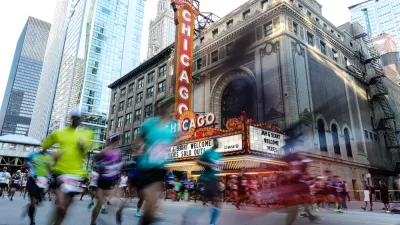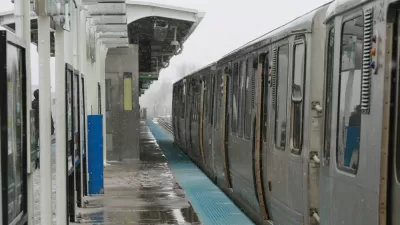The idea of a casino in Chicago didn't sound like a good idea to a state-hire consultant, nor does it seem like the city's Pulitzer Prize winning architecture critic likes the idea either.

Blair Kamin, Meghan Kelly,Ryan Ori, and Mary Wisniewski report on the ongoing sage of the potential for a casino to be located in Chicago, a controversial issue and one of the main new items so far in the tenure of new Mayor Lori Lightfoot.
According to the article, the mayor is considering five potential sites, but a state-hired consultant has determined that the tax structure in Chicago will doom any casino to fail.
The Tribune did their own analysis of the five sites, all located on the South and West sides of the city, reflecting "Lightfoot's campaign pledge to direct economic developments to economically struggling areas of the city."
To provide a deeper understanding of the sites, Tribune researchers and reporters assembled data that focuses on characteristics like transportation (average daily traffic counts on nearby expressways, for example) and neighborhood characteristics such as average household income and crime levels. We also assessed whether each site has the support of its local alderman and gauged the overall size of the gambling market in northern Illinois and northern Indiana.
The article then provides specific details of the analysis for each of the five sites: Harborside, Michael Reese, Pershing and State, Roosevelt and Kostner, and U.S. Steel.
Kamin followed up the big feature article with a column suggesting (with "tongue planted firmly in cheek") suggestions for a casino in Chicago. The seriousness of that endeavor, and Kaimn's opinion of the idea, can be spotted instantly, with recommendations like: "Have President Donald Trump or family members running his business turn the perpetually vacant retail space at the bottom of his Chicago skyscraper into a casino. Never mind that Trump bankrupted his Atlantic City casinos."
FULL STORY: Column: A consultant disses Lightfoot’s casino sites. Now what?

Alabama: Trump Terminates Settlements for Black Communities Harmed By Raw Sewage
Trump deemed the landmark civil rights agreement “illegal DEI and environmental justice policy.”

Study: Maui’s Plan to Convert Vacation Rentals to Long-Term Housing Could Cause Nearly $1 Billion Economic Loss
The plan would reduce visitor accommodation by 25% resulting in 1,900 jobs lost.

Why Should We Subsidize Public Transportation?
Many public transit agencies face financial stress due to rising costs, declining fare revenue, and declining subsidies. Transit advocates must provide a strong business case for increasing public transit funding.

Paris Bike Boom Leads to Steep Drop in Air Pollution
The French city’s air quality has improved dramatically in the past 20 years, coinciding with a growth in cycling.

Why Housing Costs More to Build in California Than in Texas
Hard costs like labor and materials combined with ‘soft’ costs such as permitting make building in the San Francisco Bay Area almost three times as costly as in Texas cities.

San Diego County Sees a Rise in Urban Coyotes
San Diego County experiences a rise in urban coyotes, as sightings become prevalent throughout its urban neighbourhoods and surrounding areas.
Urban Design for Planners 1: Software Tools
This six-course series explores essential urban design concepts using open source software and equips planners with the tools they need to participate fully in the urban design process.
Planning for Universal Design
Learn the tools for implementing Universal Design in planning regulations.
Smith Gee Studio
Alamo Area Metropolitan Planning Organization
City of Santa Clarita
Institute for Housing and Urban Development Studies (IHS)
City of Grandview
Harvard GSD Executive Education
Toledo-Lucas County Plan Commissions
Salt Lake City
NYU Wagner Graduate School of Public Service





























